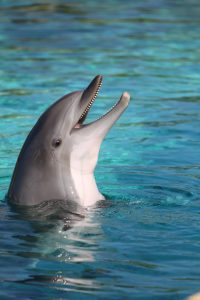Canada poised to take a step towards increased animal rights
By Katie Czenczek, News Editor
It may soon be a criminal offense to hold dolphins and whales in captivity.
On November 29, Bill S-203 entered the House of Commons for debate after passing through the Senate in October. The bill rules that any cetaceans—which includes all whales, dolphins, and porpoises—found in captivity in Canada are to be released if they are being bred, held as pets, or are used for entertainment purposes. However, cetaceans that are currently in captivity aren’t necessarily expected to be released.
The exceptions to this rule are when a person is conducting scientific research approved by the Lieutenant Governor in Council, or if the cetacean would do better in captivity than in the wild.
Earlier this year, the Vancouver Aquarium was caught in an international controversy over whether or not they should be able to hold dolphins in captivity. Many Vancouverites petitioned for these sea creatures to be returned to the ocean, while others supported the educational purposes the aquarium presents. Eventually the Vancouver Aquarium gave in and ended their dolphin and orca shows.
The Vancouver Park Board decided to bar the aquarium from acquiring any new dolphins, whales, or narwhals in the spring of 2017.
John Nightingale, the CEO of the Vancouver Aquarium, said in an interview with the CBC earlier this year that they were disappointed but thought it was necessary because of public opinion.
“We absolutely believe in the value of whales and dolphins in engaging people,” he told CBC News. “But you also have to be realistic, and it has gotten to the point where the debate in the community, with the lawyers, with the politicians […] is debilitating our work on our mission.”
Bill S-203 lays out that anyone who fails to adhere to the new laws can be fined up to $200,000. Cetaceans cannot be imported or exported from Canada unless the cross-border movement results from the same exceptions listed above.
Through an emailed statement to the Other Press, the aquarium responded to the recent bill passed by the federal government.
“While the passing of Bill S203 at the Senate is a preliminary step, we are disappointed by the outcome,” they wrote. “As amended, the Bill provides an unworkable regulatory framework for the timely transfer of a rescued cetacean, should it be required. Vancouver Aquarium operates the only not-for-profit Marine Mammal Rescue Centre in Canada and the Bill may impede on the ability of our first responders to save sick, injured, or stranded cetaceans when needed.”
The non-profit, which currently has a Pacific white-sided dolphin named Helen under their care, wrote in a blog post in January that they will start constructing an Arctic exhibit. It is scheduled to open in 2019 and is said to have a focus on educating people about the fragility of Arctic Ocean marine life.
Janeta Jane, a student at Douglas College pursuing creative writing, emailed to the Other Press a statement about Bill S-203 and what it means for cetacean lovers in Canada.
“Captivity for cetaceans is absolutely incompatible with their innate needs, which causes them to become unhealthy, sick, and stressed,” she wrote. “Their natural desire and need to be free is their strongest need, and when this is taken from them, they act out in ways that are completely insane for these creatures in the wild.”
Jane also mentioned some of the orca attacks that have occurred in various aquariums all over Canada and the US, where cetaceans have killed their trainers due to what many believe to be the stresses of captivity.
“Orcas have never been known to attack a human in the wild, but since 1991, three trainers have been attacked and killed [by orcas] in captivity. Whales’ life spans can range from 60 to 100 years, but in captivity, the average age is 14 years. With dolphinariums, the average age of death is even more premature, and is sometimes caused by self-harm or suicide. Captivity for cetaceans is nothing less than cruelty.”
Dolphins are believed to be the second-smartest creatures in the animal kingdom, behind humans. National Geographic wrote in a blog post that for this reason, “captivity and dolphins are incompatible.” In the same blog post, they also highlighted that tanks do not offer enough of a diverse marine life for these big brains of theirs to be used.
Not only that, but dolphins are believed to have emotions as well.
“Dolphins, like us, have a limbic system and are able to experience a broad spectrum of emotions including joy, grief, frustration, anger, and love,” said the blog post.
Jane said she hopes, as long as S-203 does come into effect and is followed, that things will change in Canada.
“This law is being fought to be tossed now by corporatocracy (usually never allowed), and as we’ve seen for years, money talks because we’re ruled by economic interests for the few, over humanitarian or animal rights for the many,” she wrote. “If this law is upheld, it may pave the way for a healing of our entire planet due to the way our justice system works.”


